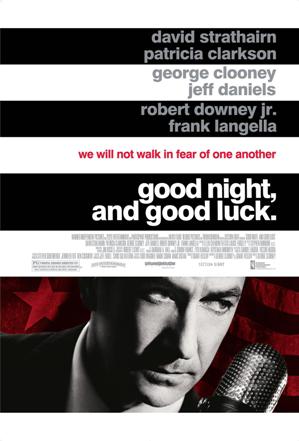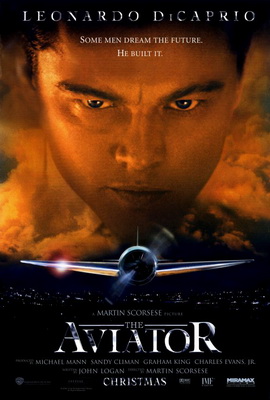The International Press Academy — a.k.a. the Oscar precursor that nobody cares about — announced their nominees for the best of 2016 earlier today and it was a very good day for a film that I cannot wait to see, La La Land!
Here are the Satellite nominations!
Special Achievement Award Recipients
Mary Pickford Award- Edward James Olmos
Tesla Award- John Toll
Auteur Award- Tom Ford
Humanitarian Award- Patrick Stewart
Best First Feature- Russudan Glurjidze “House of Others”
Best Ensemble: Motion Picture- “Hidden Figures”
Best Ensemble: Television- “Outlander”
Actress in a Motion Picture
Annette Bening, “20th Century Woman”
Emma Stone, “La La Land”
Natalie Portman, “Jackie”
Ruth Negga, “Loving”
Taraji P. Henson, “Hidden Figures”
Meryl Streep, “Florence Foster Jenkins”
Isabelle Huppert, “Elle”
Amy Adams, “Nocturnal Animals”
Actor in a Motion Picture
Casey Affleck, “Manchester by the Sea”
Ryan Gosling, “La La Land”
Joseph Gordon-Levitt, “Snowden”
Viggo Mortensen, “Captain Fantastic”
Joel Edgerton, “Loving”
Andrew Garfield, “Hacksaw Ridge”
Tom Hanks, “Sully”
Denzel Washington, “Fences”
Actress in a Supporting Role
Helen Mirren, “Eye in the Sky”
Michelle Williams, “Manchester by the Sea”
Nicole Kidman, “Lion”
Octavia Spencer, “Hidden Figures”
Naomi Harris, “Moonlight”
Viola Davis, “Fences”
Actor in a Supporting Role
Jeff Bridges, “Hell or High Water”
Mahershala Ali, “Moonlight”
Dev Patel, “Lion”
Lucas Hedges, “Manchester by the Sea”
Eddie Murphy, “Mr. Church”
Hugh Grant, “Florence Foster Jenkins”
Motion Picture
“La La Land”
“Moonlight”
“Manchester by the Sea”
“Lion”
“Jackie”
“Hacksaw Ridge”
“Loving”
“Hell or High Water”
“Nocturnal Animals”
“Captain Fantastic”
“Hidden Figures”
“Fences”
Motion Picture, International Film
“The Happiest Day in the Life of Olli Maki”- Finland
“Toni Erdmann”- Germany
“Julieta”- Spain
“A Man Called Ove”- Sweden
“The Salesman”- Iran
“The Ardennes”- Belgium
“Ma’ Rosa”- Philippines
“The Handmaiden”- South Korea
“Elle”- France
“Paradise”- Russia
Motion Picture, Animated or Mixed Media Title of Film
“Zootopia”
“Kubo and the Two Strings”
“Moana”
“Finding Dory”
“My Life As a Zucchini”
“The Jungle Book”
“The Red Turtle”
“Miss Hokusai”
“Trolls”
“Your Name”
Motion Picture, Documentary
“Gleason”
“Life Animated”
“O.J.: Made in America”
“13th”
“The Ivory Game”
“The Eagle Huntress”
“Tower”
“Fire at Sea”
“Zero Days”
“The Beatles: Eight Days a Week”
Director
Barry Jenkins, “Moonlight”
Kenneth Lonergan, “Manchester by the Sea”
Mel Gibson, “Hacksaw Ridge”
Damien Chazelle, “La La Land”
Tom Ford, “Nocturnal Animals”
Pablo Larrain, “Jackie”
Denzel Washington, “Fences”
Screenplay, Original
Barry Jenkins, “Moonlight”
Damien Chazelle, “La La Land”
Kenneth Lonergan, “Manchester by the Sea”
Taylor Sheridan, “Hell or High Water”
Matt Ross, “Captain Fantastic”
Yorgos Lanthimos/Efthymis Filippou, “The Lobster”
Screenplay, Adapted
Andrew Knight/Robert Schenkkan, “Hacksaw Ridge”
Luke Davis, “Lion”
Kieran Fitzgerald/Oliver Stone, “Snowden”
Justin Marks, “The Jungle Book”
Allison Schroeder, “Hidden Figures”
Todd Komarnicki, “Sully”
Original Score
Rupert Gregson Williams, “Hacksaw Ridge”
Justin Hurwitz, “La La Land”
Lesley Barber, “Manchester by the Sea”
John Williams, “The BFG”
John Debney, “The Jungle Book”
Hans Zimmer, “Hidden Figures”
Original Song
“Audition”- ‘La La Land’
“City of Stars”- ‘La La Land’
“Dancing with Your Shadow”- ‘Po’
“Can’t Stop the Feeling”- ‘Trolls’
“I’m Still Here”- ‘Miss Sharon Jones’
“Running”- ‘Hidden Figures’
Cinematography
John Toll, “Billy Lynn’s Long Halftime Walk”
Linus Sandgren, “La La Land”
James Laxton, “Moonlight”
Simon Duggan, “Hacksaw Ridge”
Jani-Petteri Passi, “The Happiest Day in the Life of Olli Maki”
Bill Pope, “The Jungle Book”
Visual Effects
“The Jungle Book”
“Billy Lynn’s Long Halftime Walk”
“Doctor Strange”
“The BFG”
“Sully”
“Deadpool”
Film Editing
Tom Cross, “La La Land”
Joi McMillon/Nat Sanders, “Moonlight”
Tim Squyres, “Billy Lynn’s Long Halftime Walk”
Alexandre de Francheschi, “Lion”
John Gilbert, “Hacksaw Ridge”
Steven Rosenblum, “The Birth of a Nation”
Sound (Editing and Mixing)
“La La Land”
“Billy Lynn’s Long Halftime Walk”
“Hacksaw Ridge”
“The Jungle Book”
“Allied”
“13 Hours: The Secret Soldiers of Benghazi”
Art Direction and Production Design
David Wasco, “La La Land”
Barry Robinson, “Hacksaw Ridge”
Jean Rabasse, “Jackie”
Christophe Glass, “The Jungle Book”
Gary Freeman, “Allied”
Dan Hennah, “Alice Through the Looking Glass”
Costume Design
Colleen Atwood, “Alice Through the Looking Glass”
Eimer Ní Mhaoldomhnaigh, “Love & Friendship”
Courtney Hoffman, “Captain Fantastic”
Madeline Fontaine, “Jackie”
Mary Zophres, “La La Land”
Alexandra Byrne, “Doctor Strange”


